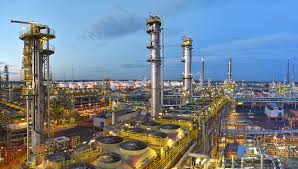Top 5 Trends in the Chemical Industry: The Surge of Hydrogen as a Clean Fuel

Strong 8k brings an ultra-HD IPTV experience to your living room and your pocket.
Introduction:
The chemical industry plays a crucial role in shaping the global economy, driving innovation, and improving the quality of life worldwide. As global challenges, including environmental sustainability and energy security, intensify, the chemical sector is undergoing a transformative shift. Companies and governments alike are looking for innovative solutions to reduce carbon emissions, improve efficiency, and embrace cleaner technologies. One of the most significant trends within the industry is the surge of hydrogen as a clean fuel.
Get FREE Sample of the Chemical Market Report: https://www.nextmsc.com/chemical-market/request-sample
1. The Surge of Hydrogen as a Clean Fuel in the Chemical Industry
Hydrogen has long been recognized as a promising alternative to traditional fossil fuels in many industrial sectors. In recent years, its role as a clean fuel in the chemical industry has gained significant momentum. Hydrogen is increasingly seen as a key enabler of the transition toward a low-carbon economy, especially when produced from renewable sources like wind and solar power.
Download FREE Sample of Hydrogen Market: https://www.nextmsc.com/hydrogen-market/request-sample
Why Hydrogen?
Hydrogen’s potential as a clean fuel lies in its ability to provide high energy density while producing zero carbon emissions when burned or used in fuel cells. This makes it an attractive option for decarbonizing the chemical industry, which is notorious for its high carbon footprint. Traditional methods of producing chemicals, such as ammonia, methanol, and ethylene, rely heavily on fossil fuels like natural gas. Hydrogen can be used in these processes as a feedstock or fuel, reducing reliance on carbon-intensive resources.
In the chemical industry, hydrogen plays a critical role in various applications:
• Feedstock for Chemical Synthesis: Hydrogen is essential in producing ammonia (used in fertilizers), methanol, and other chemicals. The adoption of hydrogen in these processes can significantly lower their carbon intensity.
• Fuel Cells: Hydrogen fuel cells are gaining traction as an alternative power source for vehicles, equipment, and even larger chemical production facilities. Their ability to generate electricity with water as the only by-product aligns with the industry's sustainability goals.
• Decarbonizing High-Temperature Processes: Many chemical processes require heat, which is often generated through burning fossil fuels. Hydrogen can serve as a high-temperature fuel for these processes, helping reduce CO2 emissions.
The Path Forward for Hydrogen in the Chemical Industry
Several factors are driving the increased adoption of hydrogen in the chemical industry. These include:
• Renewable Hydrogen Production: The cost of producing green hydrogen (hydrogen generated from renewable energy sources) is falling rapidly, making it more affordable for large-scale industrial applications.
• Government Support and Policy Incentives: Many governments are introducing subsidies, incentives, and regulations to encourage the development of hydrogen infrastructure and technology. This includes funding for research into hydrogen production, storage, and transportation methods.
• Strategic Industry Partnerships: Chemical companies are forming strategic partnerships with energy firms and startups to accelerate the commercialization of hydrogen technologies.
Overall, the surge of hydrogen as a clean fuel is reshaping the chemical industry by offering a sustainable, efficient, and versatile energy source that can replace or reduce the use of fossil fuels.
2. Digitalization and Automation in Chemical Manufacturing
Digitalization is another key trend in the chemical industry that has gained significant momentum. By adopting advanced technologies such as Artificial Intelligence (AI), the Internet of Things (IoT), and automation, companies can increase operational efficiency, reduce costs, and enhance safety.
AI and Machine Learning in Process Optimization
AI and machine learning are playing a pivotal role in improving production processes. These technologies can analyze large amounts of data to identify inefficiencies, predict equipment failures, and optimize chemical formulations. This enables manufacturers to reduce waste, increase throughput, and improve the quality of the final product.
Automation and Robotics in Chemical Plants
Automation is transforming the way chemical plants operate. Robots and automated systems are increasingly being used to perform tasks such as material handling, packaging, and quality control. This not only improves productivity but also reduces the risk of human error and enhances worker safety.
The integration of digital technologies in the chemical industry is paving the way for more flexible, responsive, and sustainable production systems, allowing companies to better meet the demands of a rapidly changing global market.
3. Circular Economy and Waste Valorization
The push for sustainability in the chemical industry has led to the rise of the circular economy model. This approach focuses on minimizing waste and maximizing the reuse and recycling of materials throughout the product lifecycle.
Waste Valorization in Chemical Manufacturing
Waste valorization refers to the process of converting waste materials into valuable products, such as energy or chemicals. In the chemical industry, waste valorization can include the use of industrial by-products or post-consumer waste to create new chemicals or materials. For example, plastic waste can be converted into feedstocks for chemical production, reducing the reliance on virgin materials and minimizing environmental impact.
Chemical Recycling
Chemical recycling is gaining attention as an alternative to traditional recycling methods. Unlike mechanical recycling, which breaks down materials physically, chemical recycling involves breaking down plastics into their original chemical building blocks. These building blocks can then be used to create new plastics or other chemicals, effectively closing the loop and reducing waste.
The circular economy and waste valorization are essential for the chemical industry to reduce its environmental footprint, conserve resources, and embrace more sustainable production practices.
4. Green Chemistry and Sustainable Product Development
Green chemistry is a growing trend that focuses on designing chemical products and processes that are more environmentally friendly, sustainable, and safer for human health. By using renewable feedstocks, reducing energy consumption, and minimizing waste, green chemistry helps reduce the negative environmental impact of chemical manufacturing.
Sustainable Catalysis
Catalysis plays a central role in many chemical processes, and innovations in this area are making a significant impact on sustainability. Sustainable catalysts, such as those that use non-toxic or abundant materials, are being developed to replace traditional catalysts that rely on scarce or harmful substances like precious metals. These advances are not only more sustainable but also improve the efficiency of chemical reactions, reducing the energy and raw materials required.
Biochemicals and Bio-based Feedstocks
Another aspect of green chemistry is the shift toward biochemicals and bio-based feedstocks. These renewable alternatives to petroleum-derived chemicals can help reduce the carbon footprint of the chemical industry. For example, plant-based feedstocks like sugar, corn, and algae are being used to produce chemicals traditionally derived from fossil fuels. These bio-based chemicals are often biodegradable and have a lower environmental impact.
5. Energy Efficiency and Carbon Capture Technologies
As the chemical industry is one of the largest industrial emitters of CO2, improving energy efficiency and reducing carbon emissions are critical goals for companies striving to meet global climate targets. Carbon capture, utilization, and storage (CCUS) technologies are essential to reducing the industry’s overall carbon footprint.
Carbon Capture, Utilization, and Storage (CCUS)
CCUS technologies capture CO2 emissions from industrial processes and either store them underground or repurpose them into useful products, such as chemicals, plastics, or synthetic fuels. This can significantly reduce the amount of CO2 released into the atmosphere and help mitigate the effects of climate change.
Energy-Efficient Chemical Processes
In addition to CCUS, improving the energy efficiency of chemical production processes is crucial for reducing emissions. Companies are increasingly investing in energy-efficient technologies, such as advanced heat integration systems, that allow for the reuse of waste heat. These systems reduce the need for external energy inputs and help lower overall operational costs.
Together, energy efficiency and carbon capture technologies are central to making the chemical industry more sustainable and aligning it with global climate goals.
Conclusion
The chemical industry is experiencing a period of rapid transformation as it adapts to the growing demand for sustainability, energy efficiency, and cleaner technologies. The surge of hydrogen as a clean fuel is one of the most exciting trends, offering the potential to decarbonize several key chemical processes while providing a renewable, efficient energy source.
Other key trends, such as digitalization, the rise of the circular economy, green chemistry, and advancements in carbon capture and energy efficiency, are also shaping the future of the chemical industry. By embracing these innovations, the industry is positioning itself to meet the challenges of the 21st century while driving the global transition to a more sustainable and low-carbon future.
Read the complete blog: https://www.nextmsc.com/blogs/top-5-trends-in-chemical-industry
Note: IndiBlogHub features both user-submitted and editorial content. We do not verify third-party contributions. Read our Disclaimer and Privacy Policyfor details.


